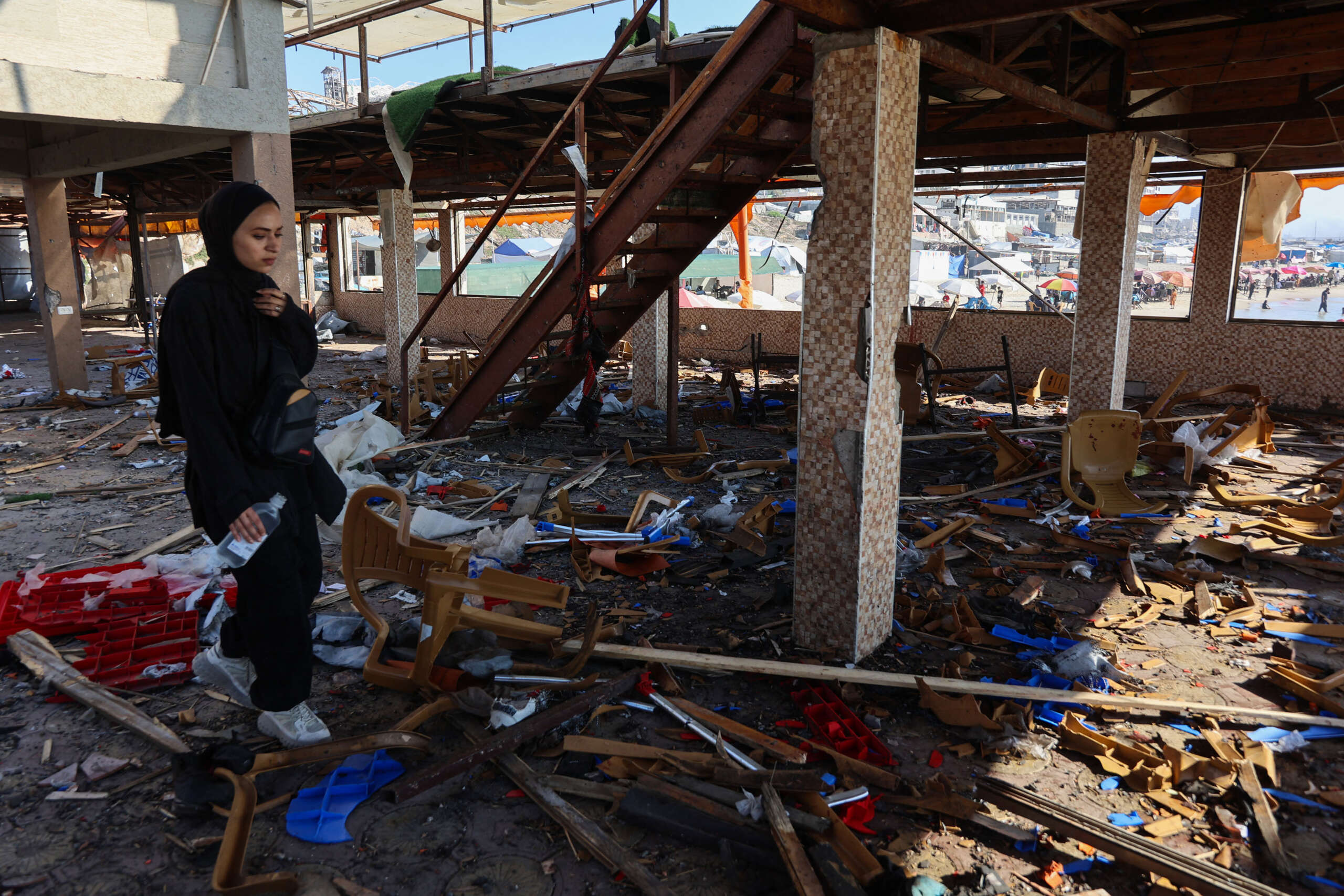Potential War Crimes in Gaza: The Impact of Recent Attacks
Context of the Attack
On a recent Monday, international law experts raised alarms about an attack on a café in Gaza, viewing it as a potential war crime. Reports from The Guardian revealed that a 500-pound bomb, supplied by the U.S. government, was responsible for this tragic incident, which claimed the lives of 24 to 36 Palestinians, including women, children, and elderly individuals. Notably, among the deceased were a prominent photojournalist and an artist, amplifying the tragedy of the event.
Details of the Assault
Eyewitness accounts and photographs from the scene documented the remnants of the bomb used in the attack. Weapons specialists confirmed that these fragments belonged to an MK-82 general-purpose bomb, a notorious component of various military campaigns globally over the past few decades. Such a device, characterized by its substantial explosive power, raises grave concerns regarding the operational decisions leading to its deployment in a densely populated civilian area.
Legal Framework and Expert Opinions
The legality of using such munitions in civilian settings draws into play the Geneva Convention, which explicitly prohibits military operations that lead to excessive civilian casualties relative to the anticipated military advantage. Experts, like Marc Schack, an associate professor of international law at the University of Copenhagen, emphasize that the application of such a potent weapon amidst civilian gatherings typically lacks justification, particularly given the significant loss of life observed.
“It is almost impossible to see how this use of that kind of munition can be justified,” expressed Schack. “If you are talking about 20, 30, 40 or more civilian casualties, usually that would have to be a target of very great importance.”
Response from Authorities
Following widespread criticism in the wake of the bombing, an IDF spokesperson asserted that the mission targeted “several Hamas terrorists” and emphasized the use of aerial surveillance aimed at minimizing civilian harm. However, the effectiveness and sincerity of these claims were questioned by human rights advocates.
Gerry Simpson from Human Rights Watch criticized the narrative suggesting a targeted mission, arguing that the military’s prior knowledge of the civilian presence undermined their defense. “The military would have known that using a large guided air-dropped bomb would kill and maim many of the civilians there,” he stated. This highlights the complexities and moral dilemmas faced during military operations in populated areas, raising critical questions about accountability.
Escalating Violence in Gaza
The aftermath of the bombing has seen a dramatic escalation in violence against civilians in Gaza. Reports from the Gaza Government Media Office indicated a harrowing toll of over 300 Palestinians killed within just 48 hours following the incident, with attacks intensifying in their frequency and brutality. These assaults have reportedly targeted various civilian sites, including shelters, public rest areas, and markets.
The situation remains dire, with incidents such as the assault on a Gaza Humanitarian Fund site, resulting in the deaths of at least 33 people amid ongoing aid distribution efforts for those in dire need. The gravity of these circumstances raises vital concerns about the responsibilities of both military and humanitarian entities in conflict zones.
Humanitarian Concerns
In response to the violence, organizations like Amnesty International have issued urgent appeals for the Israeli government to lift the blockade on essential supplies into Gaza. They argue that the ongoing strategies for aid distribution must be reviewed and recalibrated to avoid further bloodshed.
Agnès Callamard, the Secretary-General of Amnesty International, voiced the critical need for a reevaluation of operational methods employed by military forces, calling the current circumstances “the foreseeable consequence of irresponsible and lethal methods of distribution.”
Public and International Response
The international community watches closely, with myriad humanitarian NGOs echoing the call for a termination of the ongoing violence and logistical strategies that contribute to civilian casualties. Transparent, accountable operations that prioritize non-combatants remain crucial in fostering a resolution to the persistent conflict in the region.
The events surrounding the bombing at the café serve as a stark reminder of the complex interplay between military objectives and humanitarian implications. As discussions unfold globally, the emphasis on safeguarding civilian lives amid conflict remains paramount in shaping future responses and policies. Each day that passes in this tumultuous climate only highlights the urgent need for both political and humanitarian dialogues to alleviate the suffering endured by civilians caught in the crossfire.


